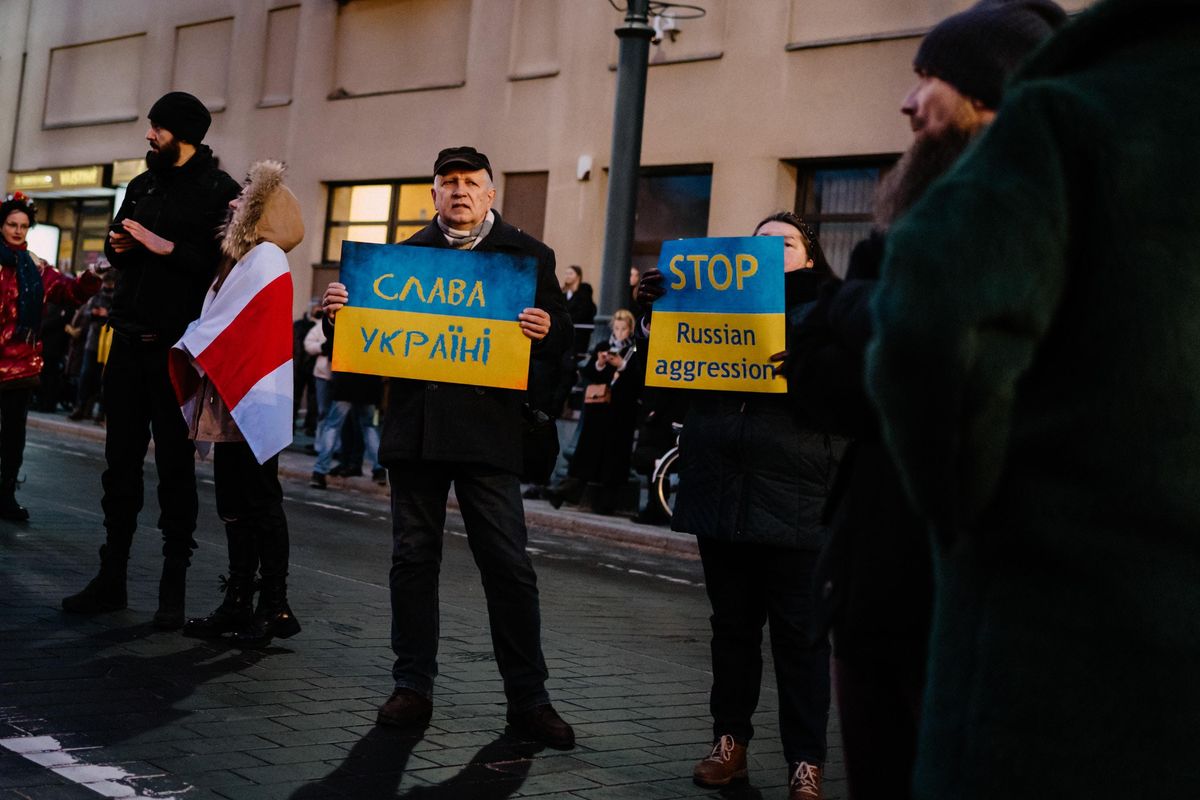
In the cold winter months of late 2013-early 2014, gunshots and smoke filled the streets of Ukraine’s capital city of Kyiv. Protestors were met with violence. Many were fatally wounded. This event became known as Ukraine’s Revolution of Dignity, and from it arose a distinctive poetic style: one that perfectly captures the tragic, complex experience of war.
Borys Humenyuk fought in the Revolution of Dignity, and found therapy writing poems on his tablet, posting them to the internet whenever he had the opportunity. He mentioned in an interview with a local Ukrainian newspaper, “sometimes, instead of yelling or crying, I want simply to shoot the skies. Some people do so – fire from their automatic guns in the sky – I write verse.” Now he is a beloved artist of his country, fondly nicknamed “The Ukrainian version of Ernest Hemingway.”
Now, the people of Ukraine mourn in the wake of violence yet again. Just before dawn on February 24, Russian President Vladimir Putin ordered a series of missile attacks on the city of Kharkiv, and the invasion has spread across central and eastern Ukrainian territory. One of Humenyuk’s most captivating poems titled “When You Clean your Weapon” reflects on his experience in a completely different war. And yet, even years later, the words still carry weight. And they help connect us to those who are suffering, even (for some us) miles and miles away. It doesn’t take away the suffering, but art and empathy are always a healing salve in one way or another.
“When You Clean your Weapon” tells the story of war from the perspective of a young soldier, who treats his gun like a child, swaddling it and shielding it from the rain. This happens before the young man has even held a real child. He climbs into the earth, which takes him in like a womb. For a moment, he remembers his connection to nature. But then he shoots. And never again can he get rid of the smell of gunpowder. For he and the war are now one.
The poem captures how humanity is lost on the battlefield, even to those who survive. We become one with the weapon, instead of each other. Violence repeatedly gets chosen as the solution, and yet perpetuates the same problematic cycle … trench after trench. The truth is, the weapon is never clean, once it’s fired.
“When You Clean Your Weapon” by Borys Humenyuk
When you clean your weapon
When time and again, you clean your weapon
When you rub strong-smelling oils into your weapon
And shield it from the rain with your own body
When you swaddle it like a baby
Even though you’ve never swaddled a baby before —
You’re only nineteen, no baby, no wife —
The weapon becomes your only kin
You and the weapon are one.
When you dig trench after trench
When you dig this precious this hateful earth by handfuls
Every other handful reaches your soul
You grind this earth between your teeth
You don’t, you never will have another
You climb into the earth like into your mother’s womb
You are warm and snug
You’ve never felt this close to anyone before
You and earth are one.
When you shoot
Even when it’s at night and you don’t see the enemy’s face
Even when night hides the enemy from you and you from the enemy
And embraces each of you as her own
You smell like gunpowder
Your hands, face, hair, clothing, shoes —
No matter how much you wash them — smell of gunpowder
They smell of war
You smell of war
You and war are one.
This poem comes from an anthology series of several poems titled “Words for War: New Poems from Ukraine,” translated by Oksana Maksymchuk and Max Rosochinksy.
